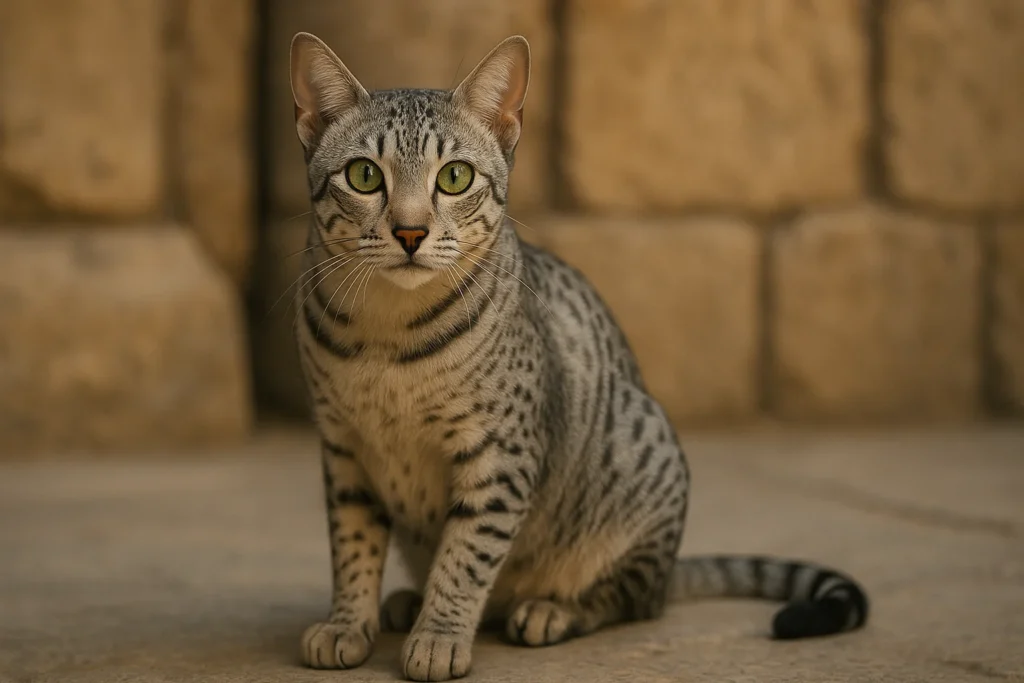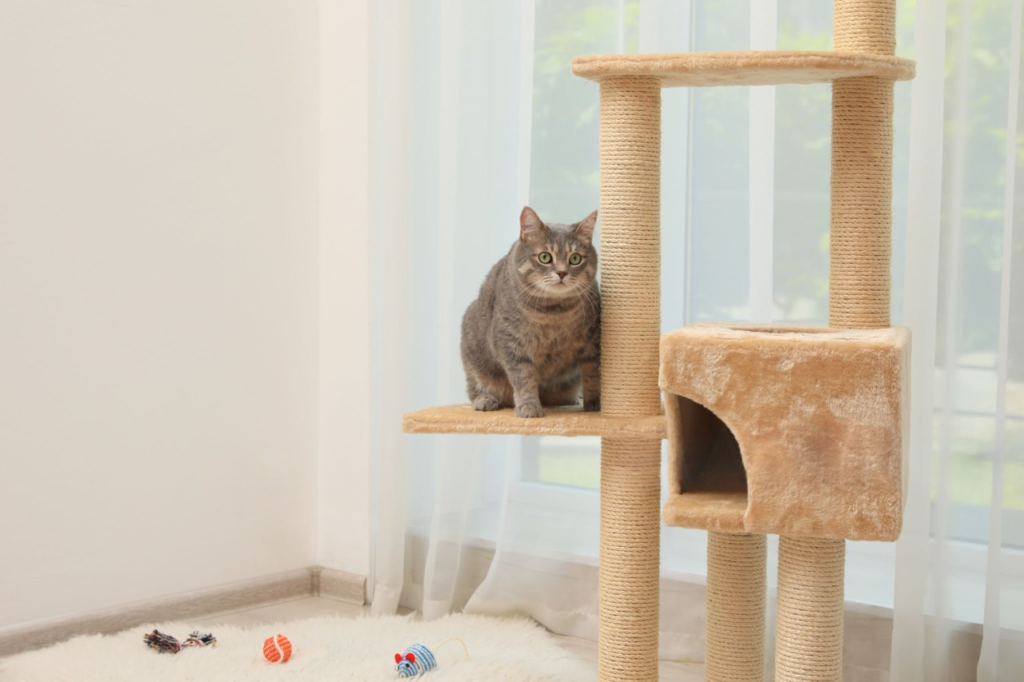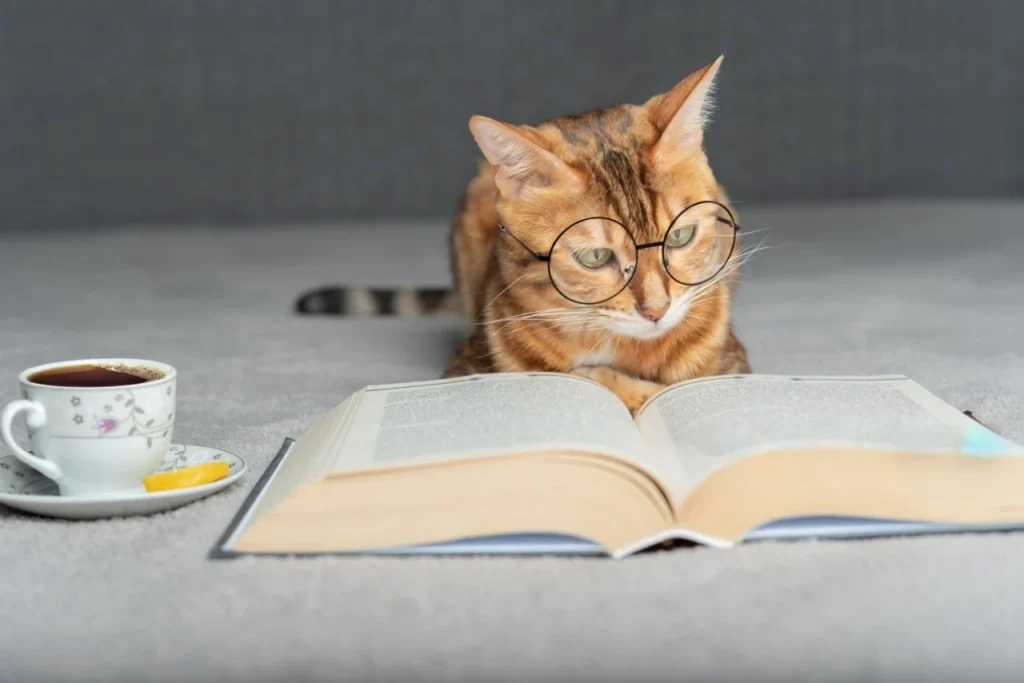When I first met an Egyptian cat, I was struck by its presence—graceful, watchful, and somehow… ancient. It moved with the poise of royalty, yet had the playful energy of a kitten. I think anyone who’s ever lived with one would agree: Egyptian cats aren’t your average lap cats. They’re athletes, observers, and sometimes, a bit dramatic. But above all, they’re utterly captivating.
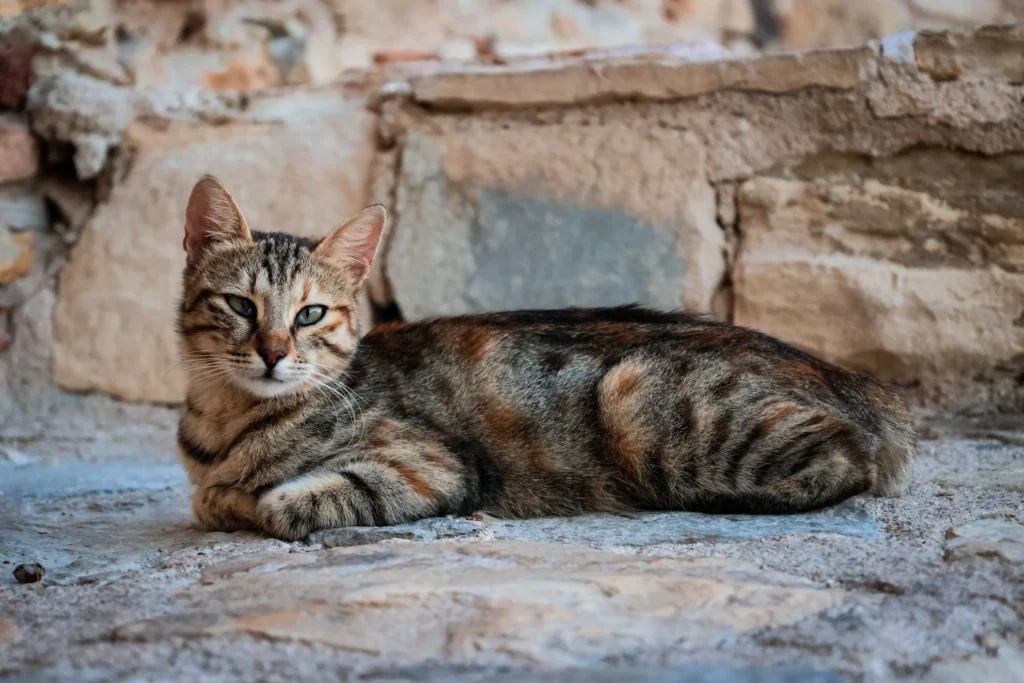
In this article, I’ll break down what makes the Egyptian cat so unique—not from a historical perspective, but as a real, living animal you can share your home with.
The nocturnal howls of coyotes are both eerie and fascinating. If you’re intrigued by animal communication, our piece on A Comprehensive Exploration of Birds’ Fascinating Ways delves into avian vocalizations.
What Is an Egyptian Cat?
Let’s start with the basics: When people say “Egyptian cat,” they usually mean one of three things:
- The Egyptian Mau – A stunning spotted domestic cat breed believed to be one of the oldest in the world.
- The Egyptian Cat Sphynx – A hairless breed with large ears and a curious personality.
- The term used more generally to refer to cats with sleek, exotic features reminiscent of those found in ancient Egypt.
Whether you’re looking at a black Egyptian cat with striking eyes, a silky spotted Mau, or a hairless Egyptian cat with alien charm, each has something in common: an elegant, exotic vibe paired with lively energy and intelligence.
Egyptian Cat Personality
Egyptian Mau cats have a distinctive personality that combines intelligence, elegance, and loyalty. Here’s what to expect from them:
Intelligent and Curious
They’re highly intelligent and love to explore their surroundings. They enjoy puzzle toys, learning tricks, and figuring things out on their own.
Active and Athletic
The Egyptian Mau is one of the fastest domestic cat breeds. They’re very energetic and agile, often climbing or sprinting around the house. A tall cat tree or climbing space is ideal.
Affectionate but Selective
They tend to form strong bonds with their owners and are very loyal. However, they can be a bit reserved around new people, preferring the company of familiar faces.
Vocal and Communicative
While not as loud as some breeds, Maus are expressive. They often chirp, trill, or use body language to communicate their moods and needs.
Sensitive and Routine-Oriented
They thrive in calm, predictable environments. Sudden changes or loud noises can stress them out, so they do best with consistent routines and gentle interactions.
Let me know if you want tips on how to keep one mentally stimulated or comfortable at home.
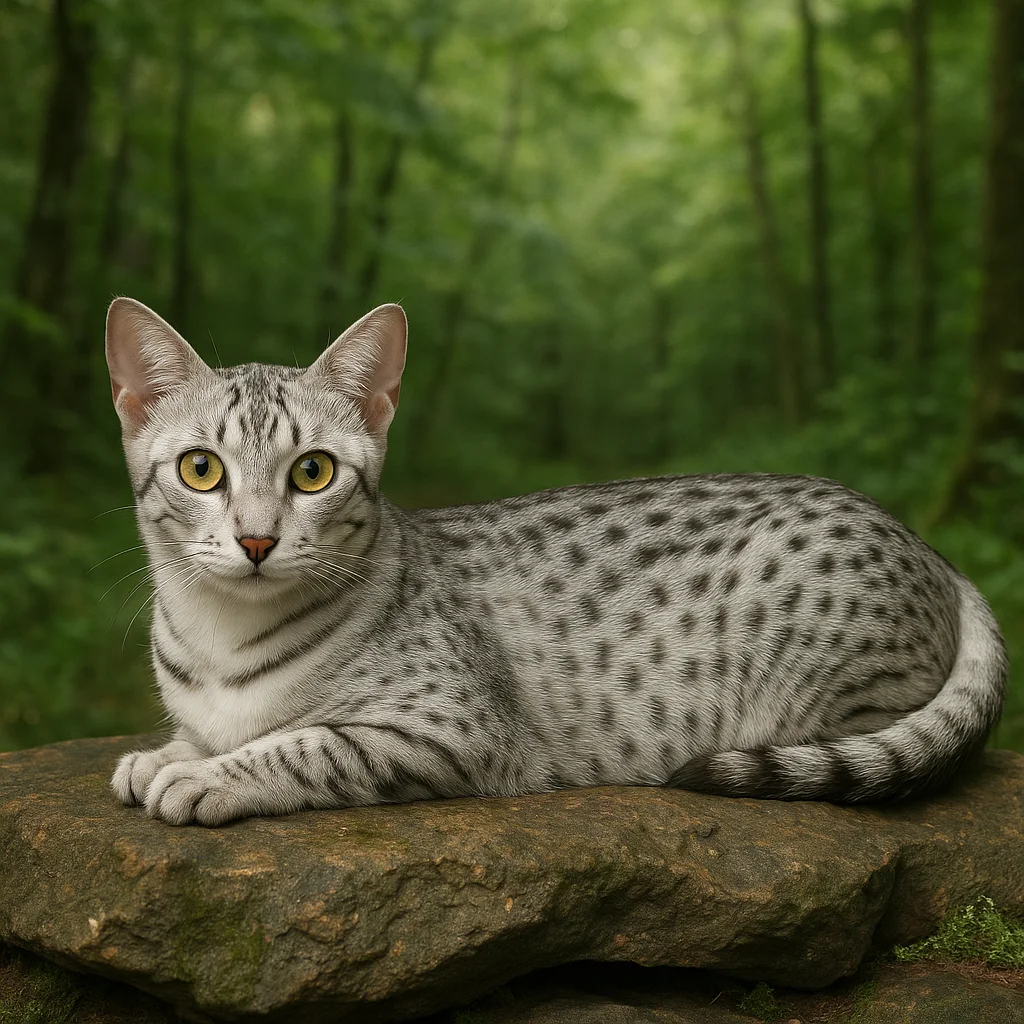
Egyptian Mau: The Athlete With a Gentle Soul
The Egyptian Mau is probably the most “official” of the Egyptian breeds. I think it’s one of the most beautiful cats I’ve ever seen—those green gooseberry eyes and naturally occurring spots make it look like a miniature wild cat.
Personality Traits:
- Affectionate but not clingy
- Loyal to their family, cautious around strangers
- Extremely intelligent and trainable
- Love to climb, sprint, and explore
One thing I’ve found out is that Maus are fast—they’re actually the fastest domestic cats, clocking speeds up to 30 mph. So don’t be surprised if your Mau darts from room to room like it’s being chased by an ancient curse.
They’re also vocal, but not in a loud, demanding way. Their chirps and trills sound almost musical—like they’re trying to talk to you in their own mysterious language.
Living With an Egyptian Cat: What You Should Know
If you’re thinking about adopting or living with an Egyptian cat, here’s what I’ve learned about what they need to thrive:
1. Mental Stimulation
These cats are intelligent and curious. Boredom can lead to destruction, so make sure they have toys, puzzles, and interactive playtime.
2. Space to Explore
Especially with the Mau, they love to climb and observe their kingdom from up high. A tall cat tree or window perch is a must.
3. Human Interaction
While they’re not always clingy, Egyptian cats tend to bond closely with their humans. If you’re away a lot, consider having two cats or hiring a sitter for company.
4. Diet and Health
They tend to be lean and muscular, so high-quality, protein-rich food is best. Regular vet visits and dental care are important, especially for breeds like the Sphynx.
5. Grooming Needs
- Egyptian Mau: Low grooming needs—just weekly brushing.
- Sphynx: High grooming needs—frequent baths, ear cleaning, and protection from sun or cold.
Living with an Egyptian cat feels a bit like sharing your space with a sleek panther, a wise mystic, and a mischievous toddler—all rolled into one. They’re striking in appearance, rich in personality, and often full of surprises.
Whether you fall for the wild look of the Egyptian Mau, the affection of the Sphynx, or the quiet power of a black Egyptian cat, you’re not just getting a pet—you’re inviting royalty into your home.
Cats in Ancient Egypt
In ancient Egypt, cats weren’t just pets—they were protectors and symbols of divinity. They hunted rodents and snakes, guarding homes and grain.
Ancient Egyptians and cats shared a sacred connection. Cats were pampered in life and mummified after death. They were linked to cat goddesses like Bastet, often shown in art as a black Egyptian cat or a woman with a cat’s head.

Even a cat pharaoh? Not exactly—but they were treated like royalty.
I Think Ancient Egyptians Were the First True Cat Lovers
One of the most striking things I found out is how deeply ancient Egyptians and cats were connected. Unlike today, where cats are mostly companions or Instagram stars, in ancient Egypt, cats were revered as sacred beings. I guess you could say cats weren’t just pets—they were family, protectors, and sometimes even divine.
Back then, harming a cat—even by accident—was a serious crime. Cats were so valued that when one died, entire households would go into mourning, sometimes even shaving their eyebrows as a sign of respect. That level of devotion says a lot.
Cats in the Ancient Egypt: Not Just House Pets
From what I’ve learned, cats in the ancient Egypt weren’t just lounging on pillows—they played an active role in daily life. They kept homes and granaries safe from rodents and snakes, which made them incredibly valuable. But it didn’t stop there. These ancient cats were painted on walls, carved into stone, and even mummified after death. Imagine that—an ancient Egypt cat being buried in its own tiny sarcophagus!
The Cat Goddess Bastet: Feline Divinity
One name that kept popping up in my research was Bastet—the cat goddess of Ancient Egypt. At first, she was depicted as a lioness, but over time she evolved into a gentler form: a woman with the head of a domestic cat. I guess that shift reflected how cats transitioned from wild hunters to beloved guardians of the home.
Bastet wasn’t just a goddess of cats—she symbolized home, fertility, protection, and joy. There were even temples built in her honor, and massive festivals were held in the city of Bubastis where people would gather, sing, dance, and celebrate cats!
When a Cat Was Treated Like a Pharaoh
Speaking of grandeur, I stumbled upon the idea of a cat pharaoh—not an official title, but some cats were treated almost like royalty. They wore gold jewelry, had their own attendants, and even shared meals with noble families. The respect cats commanded was unbelievable.
Real Egyptian Cat Breeds
1. Egyptian Mau
This spotted beauty likely came from Egyptian street cats. The Egyptian cat Mau is fast, loyal, and stunning with green eyes and unique “mascara” markings.
Related to the Bengal and modern Nile Valley Egyptian Cats.
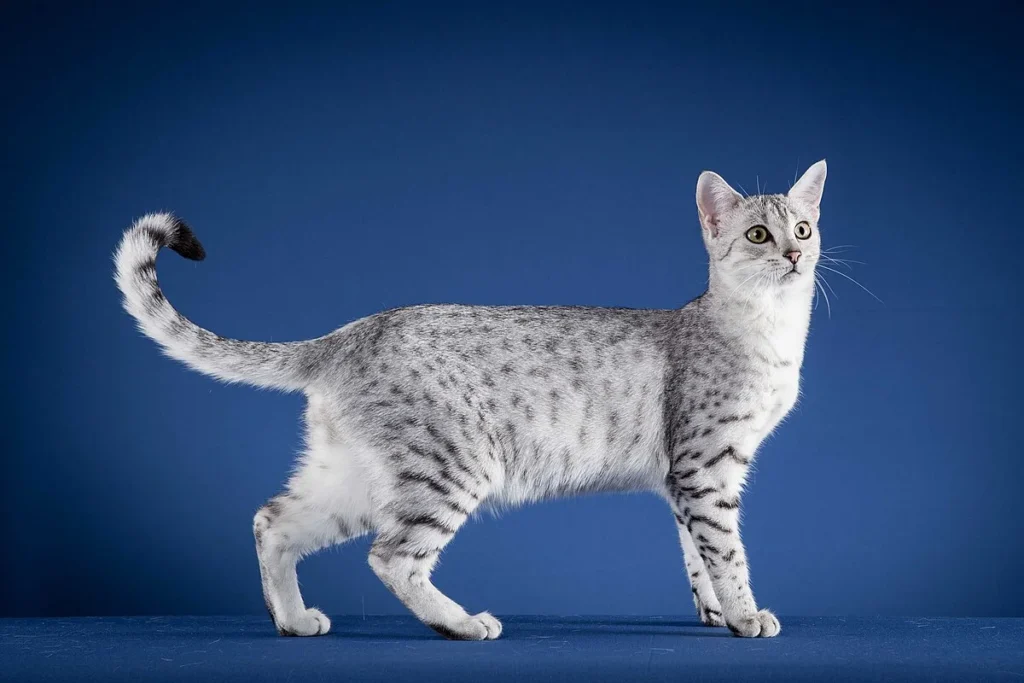
2. Chausie Cat
This large hybrid cat comes from domestic cats and the jungle cat—once revered by the ancient Egyptians. It’s playful, strong, and looks like it stepped out of a temple wall painting.
Cats People Think Are Egyptian (But Aren’t)
3. Abyssinian Cat
With a sleek look similar to ancient Egyptian cats, the Abyssinian is often mistaken as native to Egypt. But modern science suggests its roots are in Southeast Asia.
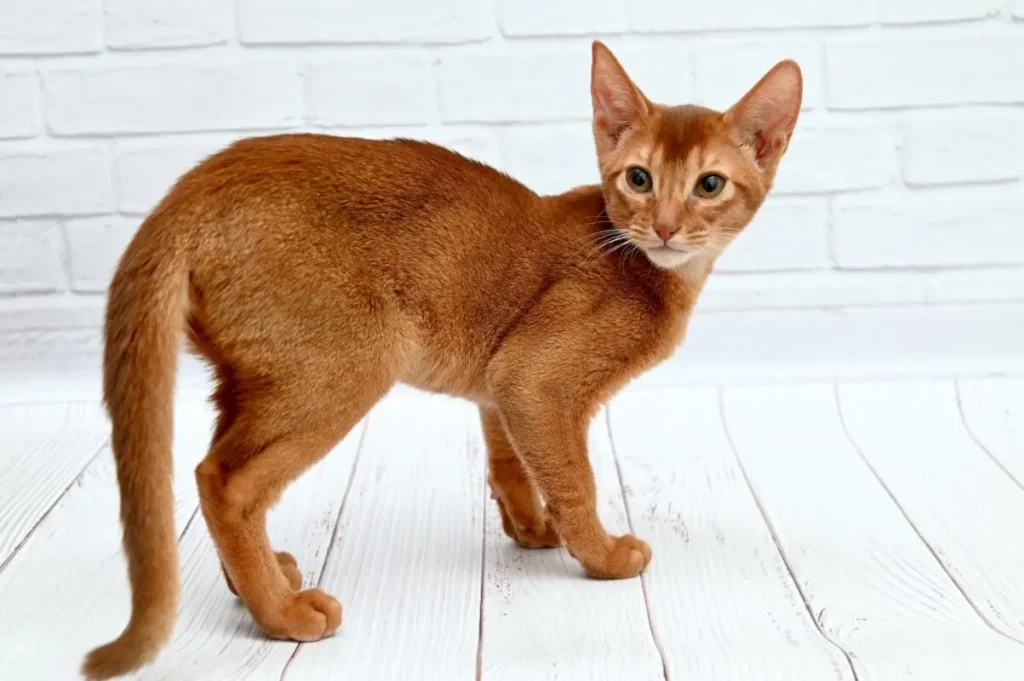
4. Savannah Cat
Spotted like a cheetah, this hybrid of domestic cat and African serval is often confused with ancient cats of Egypt. But this breed started in the U.S. in the 1980s.

5. Sphynx Cat
Many think the Sphynx is an Egyptian cat because of its name and its look—like a statue from ancient times. But the Egyptian cat hairless actually comes from Canada.
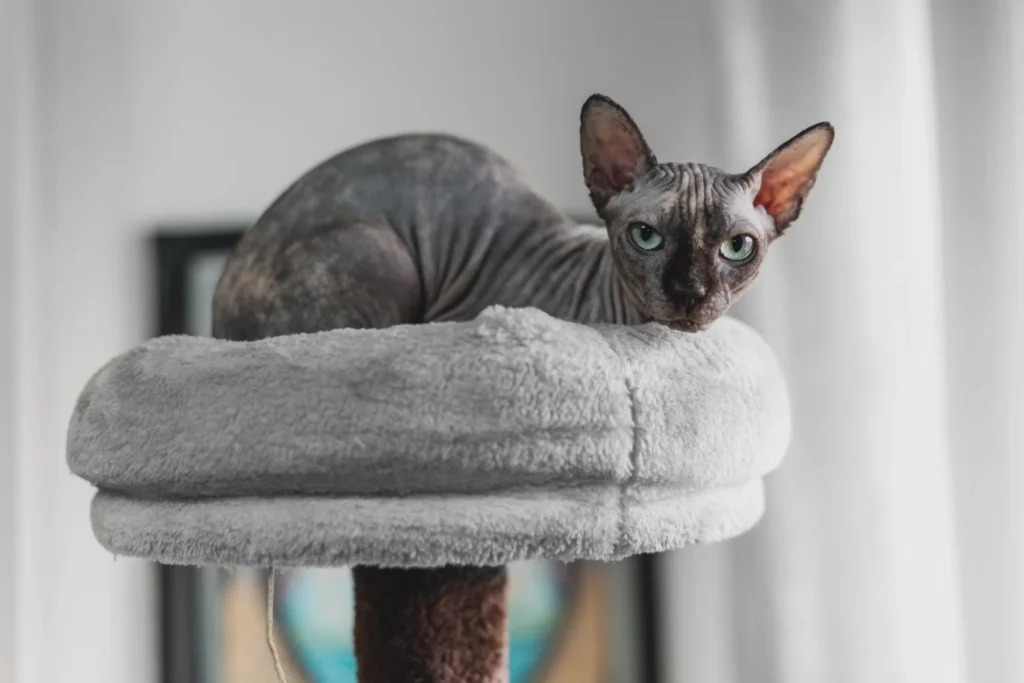
Still, it reminds many of the Egyptian cat sphynx or the mythical sphinx that guarded the pyramids.
Understanding coyote behavior can also aid in naming your pet. Our extensive list of 500 Unique Names for a Coyote as a Pet might offer the perfect moniker.
The Mysterious Black Egyptian Cat
One feline I couldn’t stop reading about was the black Egyptian cat. These sleek, shadowy figures have long been associated with magic, mystery, and protection. In ancient times, black cats were believed to ward off evil spirits—especially when tied to Bastet’s protective nature. Today, they’re still seen as lucky by many cultures, though they’ve also been misunderstood in others.
The Egyptian Mau: A Rare and Regal Breed
The Egyptian Mau is a captivating feline, revered not only for its striking spotted coat and grace but also for its ancient lineage. As one of the few naturally spotted domestic cats, the Mau carries an aura of mystery and elegance that has fascinated cat lovers for generations. This article explores the symbolism, behavior, rarity, and legality of the Egyptian Mau, offering insight into what makes this breed so unique.
What Does the Egyptian Cat Symbolize?
In ancient Egyptian culture, cats were deeply symbolic and held in the highest regard. The Egyptian Mau, believed to resemble the cats depicted in hieroglyphs and temple paintings, was associated with the goddess Bastet—protector of the home, fertility, and women. Bastet, often depicted with the head of a lioness or domestic cat, was a revered deity whose followers kept cats as sacred animals.
Cats were believed to offer protection against evil spirits and disease. Killing a cat, even accidentally, was considered a grave crime in ancient Egypt. As a result, the Egyptian Mau became a symbol of protection, divine grace, and spiritual power, often seen as a guardian of both the physical and metaphysical realms.
Are Egyptian Cats Good Pets?
Egyptian Maus can make excellent companions for the right owner. They are known for their deep loyalty, often forming strong bonds with one or two members of the household. They are affectionate and enjoy human interaction, but tend to be cautious or reserved around strangers.
Maus are active, playful, and intelligent. They need both mental and physical stimulation, including interactive toys, climbing structures, and opportunities for exploration. Because of their alert nature, they often act as natural watchdogs, alerting their owners to unusual sounds or activity.
They thrive in calm, structured environments and may become stressed if left alone for long periods or exposed to chaos. Potential owners should be prepared to offer attention, play, and a stable home life to keep this breed happy.
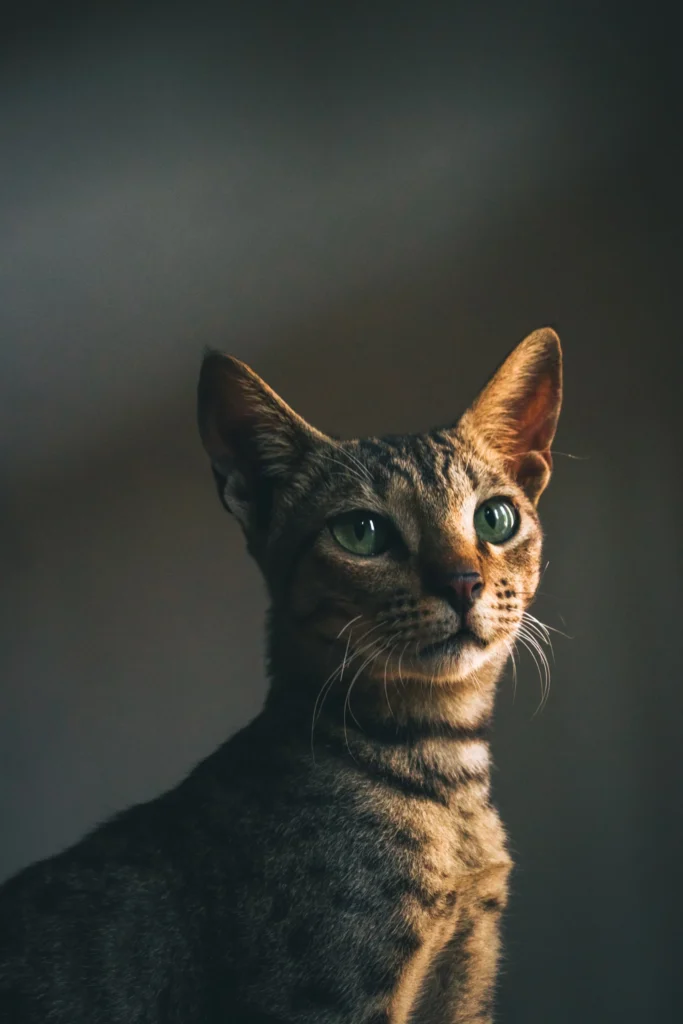
How Rare Are Egyptian Maus?
The Egyptian Mau is considered one of the rarest domestic cat breeds in the world. Unlike many modern breeds developed through crossbreeding, the Mau is a naturally occurring breed, believed to trace its roots directly back to ancient Egypt. Its rarity is partly due to its limited genetic pool and the small number of registered breeders worldwide.
Because of this, acquiring a purebred Egyptian Mau can be challenging and costly. Prospective owners may face long waitlists and should research breeders carefully to ensure ethical practices and healthy bloodlines. Their rarity also makes them a prized breed among feline enthusiasts and collectors.
Are Egyptian Maus Aggressive?
Egyptian Maus are not inherently aggressive. On the contrary, they are typically gentle, affectionate, and well-mannered when properly socialized. However, their high intelligence and alertness can make them appear aloof or wary, especially in unfamiliar situations.
They are territorial by nature and may be defensive if their space is threatened or if they feel insecure. Early socialization and consistent, positive interactions are key to developing a well-adjusted Mau. While they may not be as immediately outgoing as some breeds, their loyalty and affection run deep once trust is established.
Do Egyptian Maus Still Exist?
Yes, Egyptian Maus are a living breed and are recognized by major cat associations such as The International Cat Association (TICA), the Cat Fanciers’ Association (CFA), and others. Though rare, the breed is maintained by dedicated breeders across North America, Europe, and parts of the Middle East.
Thanks to these efforts, the Egyptian Mau continues to thrive in controlled breeding programs that emphasize both health and breed preservation. The breed’s authenticity is preserved through careful selection, and Maus are occasionally featured in cat shows and exhibitions that highlight their unique heritage.
How Intelligent Are Egyptian Maus?
The Egyptian Mau is among the most intelligent domestic cat breeds. They exhibit a high level of curiosity and problem-solving ability. Many owners report that Maus are quick learners who can be taught to fetch, respond to their name, and even open doors or cabinets.
This intelligence, while a benefit, also requires a commitment from owners to provide ongoing enrichment. Without proper stimulation, Maus can become bored, leading to undesirable behaviors such as excessive vocalization or mischief. They enjoy puzzles, games, and activities that challenge both their minds and bodies.
What Is the Rarest House Cat?
The Egyptian Mau is often listed among the rarest domestic cat breeds, but it shares this status with other elusive breeds. The Ashera cat, for example, is considered extremely rare and controversial due to its hybrid origins. Other rare breeds include the Khao Manee, known for its pure white coat and odd-colored eyes, and the Turkish Van, a breed famous for its love of swimming.
While rarity can make these cats highly desirable, it often comes with higher costs and the responsibility of supporting ethical breeding practices.
Are Egyptian Maus Legal?
In most regions, Egyptian Maus are entirely legal to own. Unlike hybrid breeds such as the Savannah or Bengal, which are derived from wildcat ancestry and may be restricted in some states or countries, the Mau is a fully domestic breed.
However, prospective owners should always check local regulations, particularly if they plan to import a Mau from abroad. Some regions may have specific requirements regarding vaccinations, permits, or animal importation laws. It is advisable to consult local authorities or breed associations before making a purchase.
Final Thoughts: Why Egyptian Cats Still Matter Today
The more I learned, the more I realized how deeply woven the Egyptian cat is into the fabric of ancient culture—and how its influence still lingers in modern times. Whether you’re captivated by mythology, history, or simply love felines, there’s something undeniably magical about these cats.
So next time you look into your cat’s eyes and see that regal, knowing gaze, you might be looking at a descendant of the divine. I guess it’s true what they say—cats never forget they were once worshipped.
